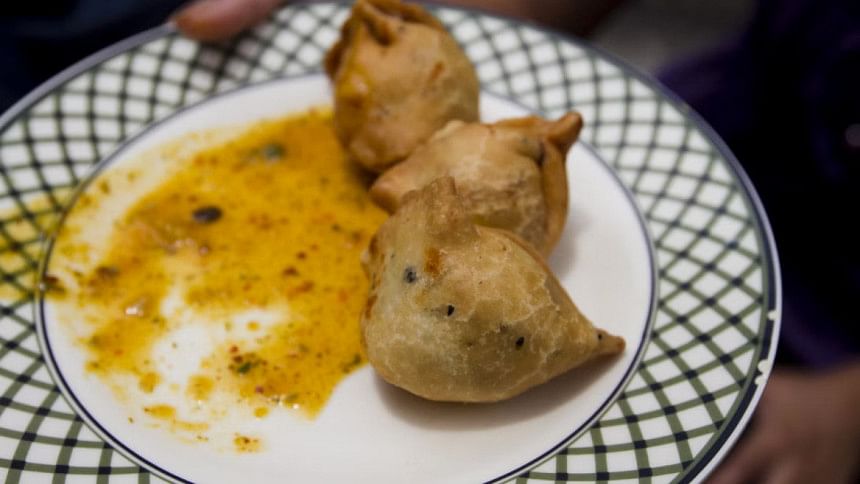There isn’t much to do in Dhaka apart from eating garbage

My friends and I have an ongoing joke about our food preferences. Whenever we try a plate of fuchka that doesn't immediately induce a digestive issue with its copious amounts of spices and other questionable ingredients, we say, "bhejal na thakle moja nai" ("There's no flavour without the impurities").
We may not realise it but it's probably an exercise in denial. The joke loses its comedic value when we stop to actually think about the quality of the food that we consume every day.
The quality of food in the city has deteriorated to the point that even the people selling it actively avoid it. One of many examples would be the video that went viral on Facebook last week. In the video, the managers of a popular kacchi chain refused to drink the juice that's offered at their own restaurants. Even though they were under the harsh scrutiny of the health inspector, their interaction was forever immortalised on the internet.
Naturally, one may think about what stopped them from taking one for the team. They could've easily downed the glass of juice, which apparently is contaminated with dye before being served to customers, and then moved on with just another fine. After all, it's nothing new that a restaurant in Dhaka has been penalised for questionable hygiene practices or their problematic stance on expiry dates and dead poultry.
Their refusal to drink it begs an even more worrisome question – what exactly did they put in the drink that they couldn't muster up the courage for a forced sip? Furthermore, why are incidents like this so rampant?
Regardless of what the answers may be, it cannot be denied that a large portion of our social lives revolve around the food culture in the city. But what other platforms do we have left for socialising if we cut out going out to restaurants?
The simplest solution is that we could just choose not to eat out or order in. Knowing how to cook is a necessary skill and refraining from eating fast food will be kinder to both our wallets and our stomach linings. We could host house parties, visit exhibitions, go on walks, and whatnot.
However, the aforementioned alternatives may be just wishful thinking as cutting out restaurants from the equation of our social lives doesn't really make sense in a country where there's not much else to do. There is a lack of options that does not involve outside food unless you're willing to stay home or spend a lot of money just to hang out with your friends.
Additionally, the severe traffic congestion that we have to face just to get from one point to another further inhibits our desires to deviate from frequent visits to restaurants in favour of a new experience. On top of that, there are safety concerns that hinder activities like going on a trip or even simply going on a walk to the park in the evening.
So, having no other option, we crawl back to restaurants where the food is cooked with no regard for hygiene and quality. Before we know it, the ritual of eating garbage becomes an unavoidable aspect of our social lives.
Clearly, a drastic change is needed in the restaurant industry in the city. Restaurants disregarding any and all sense of ethics when it comes to cutting costs while actively harming the populace has become too integrated in our lives. Several buildings in a single main road hold at least seven fast-food joints. Apart from that, availing food delivery services have become commonplace.
The trouble with the restaurant industry opens up discourse about how we desperately need more accessible means of socialising. Being unable to pay the hefty amounts of money required to do literally anything else but eat leaves a huge chunk of the population with no avenues to meet friends or family outside of their homes.
Needless to say, the possibility of change is slim. But one can always make a wish on a wishbone covered with weeks-old grease.
Fatima Jahan Ena is a sub-editor at SHOUT.

 For all latest news, follow The Daily Star's Google News channel.
For all latest news, follow The Daily Star's Google News channel. 









Comments